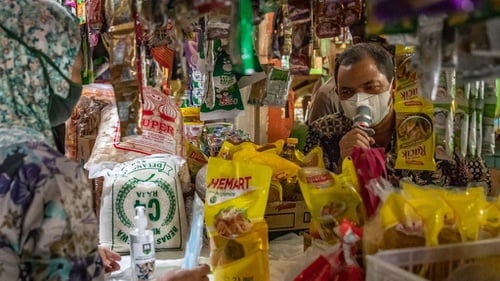UNAIR NEWS – Recently, there has been an issue of Value Added Tax (VAT) for basic needs or staple food. If the plan is enacted as law, basic commodities such as rice, eggs, meat, vegetables, and the like will be taxed on purchases.
Responding to this issue, Dr. Wasiaturrahma, S.E., M.Si., assessed that the government needs to study thoroughly before deciding on the policy. Although Indonesia is experiencing an economic slowdown during the pandemic and the tax ratio reaches 8 percent of GDP, the economist of the Faculty of Economics and Business (FEB) Universitas Airlangga (UNAIR) emphasized that the implementation of VAT on staple food is closely related to the state economy and may affect the poor. She also said that we need to learn from several developed countries that food, health, and education should not be subject to VAT because they involve primary needs in life.
“That comes from developed countries. Moreover, Indonesia is a developing country whose per-capita income has greatly declined due to the pandemic. Nowadays, people have lost their purchasing power. Therefore, the policy must be considered properly,” explained the lecturer often addressed as Rahma.

Impact on society
In her view, the implementation of VAT on staple food will make it difficult for the lower class society with irregular or regular yet low incomes. According to her, the purchasing power of the people is currently low. Consequently, if VAT on staple food is applied, the purchasing power of the lower class will fall even further.
“The government may apply this policy to the upper class but not to the lower class because it can widen the poverty and wealth disparity in Indonesia. We need to refer back to Article 33 of the 1945 Constitution, which explains that all policies are aimed at the welfare of the people,” she emphasized.
Furthermore, the lecturer said that other items should be more appropriate to be subjected to VAT than staple food.
“Luxury goods, such as imported goods from abroad, must be subject to a fairly high VAT. This is also in line with the reduction of our current account deficit,” she explained.
Importance of communication management
Rahma explained that the VAT policy on staple food also needs to pay attention to the importance of communication management in the public sphere. According to her, the government must first socialize the policies to be made with clear explanations on the reasons, so the public does not get confused. Furthermore, Rahma said that there must be an extension of government information to avoid misinterpretation.
“State what the advantages and disadvantages are so that people know and can accept the policy to be implemented,” she concluded. (*)
Author: Nikmatus Sholikhah
Editor: Feri Fenoria





